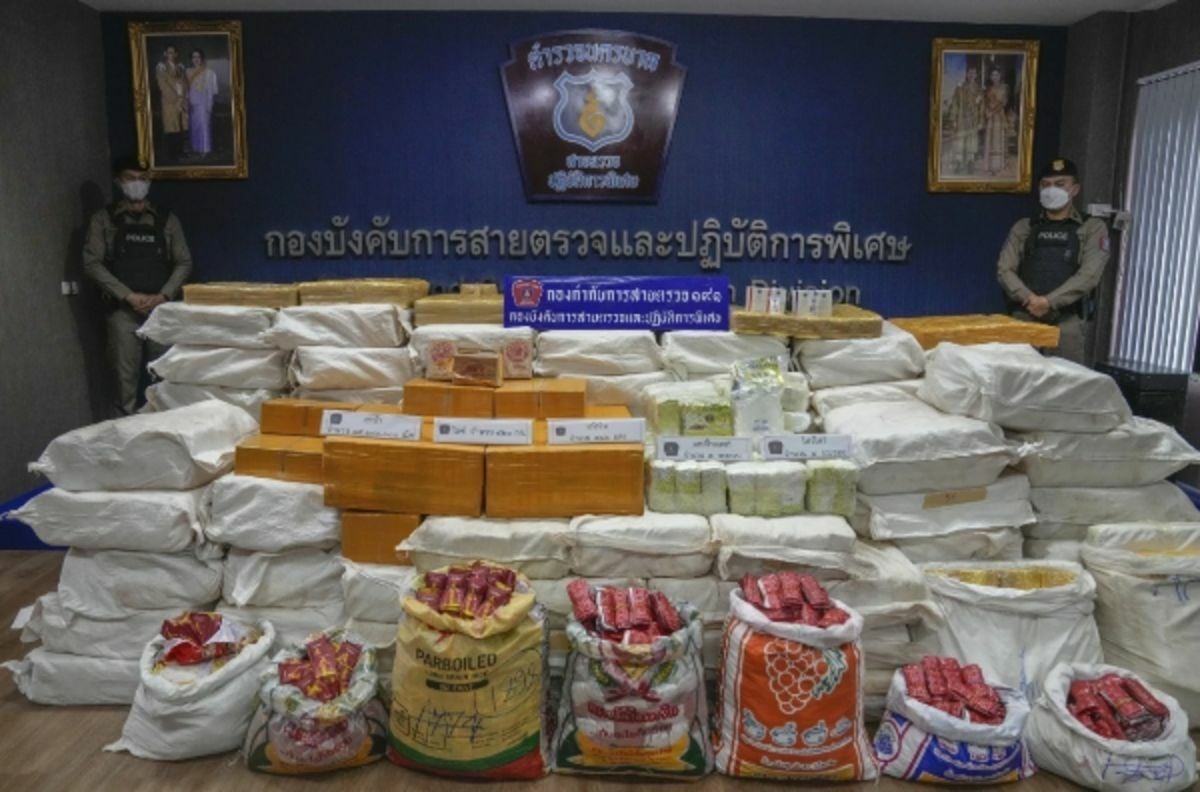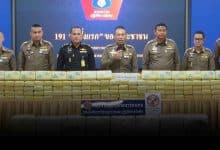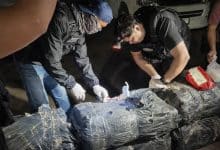Drug trafficking in 25 Thai provinces to be eradicated in 3 months

The Narcotics Suppression Bureau (NSB) declared its commitment to achieving Prime Minister Srettha Thavisin’s ambitious goal of eradicating drug trafficking in 25 of Thailand’s most affected provinces within three months.
The Bangkok-born PM announced his national priority to eliminate illegal drugs during a Cabinet meeting yesterday, July 16, setting a strict three-month deadline for state agencies to address the issue.
NSB Commissioner Police Lieutenant General Khirisak Tantinvachai expressed confidence in meeting the target.
“I’m confident the NSB will be able to accomplish the prime minister’s goal by the deadline. I believe in the possibility of the plan, with impressive results expected every 90 days.”
Pol. Gen. Khirisak noted that the NSB officers are well-versed in such policies and deadlines due to their ongoing efforts against drug dealers. He highlighted the significance of the Narcotics Act of December 8, 2021, which categorises narcotic substances and prioritises both rehabilitation and legal processes in line with United Nations guidelines.
“Setting a deadline and proactively working on drug suppression helps dealing with the problem more than a yearly assessment. An assessment conducted in every quarter helps lower the chance of narcotic drugs spreading in the country.”
Control substances
To tackle the issue, the NSB plans to control reactant substances such as benzyl cyanide, sodium cyanide, sulphuric acid, aniline, acetonitrile, methanol, chloroform, and toluene. These substances are often imported by logistics vessels from Asian countries and can evade detection by being registered to non-existent factories, such as those in Yangon, Myanmar.
Khirisak shared an example of NSB officers seizing more than 90 tonnes of reactant substances at Laem Chabang pier in Chon Buri yesterday. The vessel had departed from Busan, South Korea, on May 29 and was headed for a fictitious factory in Myanmar.
The seized substances could have produced at least 270 million methamphetamine pills, as well as crystal meth and cocaine.
A total of 720 million methamphetamine pills were confiscated last year, and an additional 800 million pills in the first three quarters of this year. The NSB’s strategy involves arresting small dealers, which often leads to uncovering larger networks.
This tactic has successfully targeted 80% of major networks with at least 500,000 methamphetamine pills in stock and 48% of smaller networks with 100,000 to 500,000 pills. Additionally, it has led to raids on 10% of drug networks at the community level.
Despite most narcotic drugs being manufactured along the border, Khirisak identified the drug trafficking efforts, which saw the spread of drugs into downtown areas.
Contain spread
“Dealers also have a strategy to keep transporting drugs, so we are now focused on preventing the drugs from entering city and urban areas.”
Soldiers are tasked with preventing drug trafficking along the border, while the police, especially the NSB, focus on urban areas.
The government and state agencies have been working on this initiative since last October, targeting 25 high-risk provinces such as Bangkok, Chon Buri, Nakhon Ratchasima, and Surat Thani. Additionally, five provinces in the Deep South: Narathiwat, Yala, Pattani, Satun, and Songkhla are considered high-risk.
Police Inspector-General, Police General Kraiboon Suadsong, led a pilot programme in Roi Et and Nan, provinces with high rates of narcotic drug usage. Khirisak emphasised the need for more officers and a larger budget for the project’s success, reported KhaoSod.
Latest Thailand News
Follow The Thaiger on Google News:


























